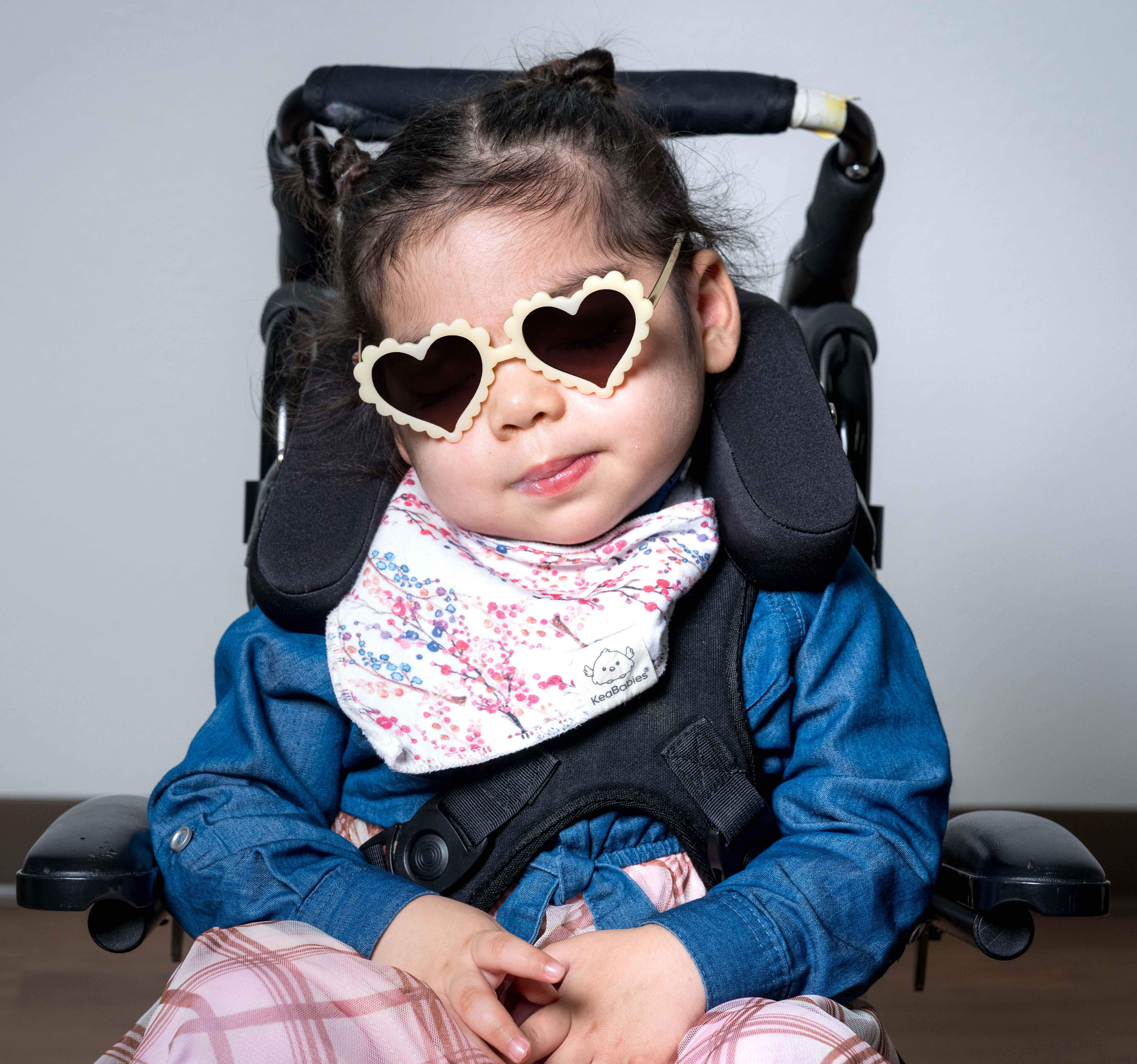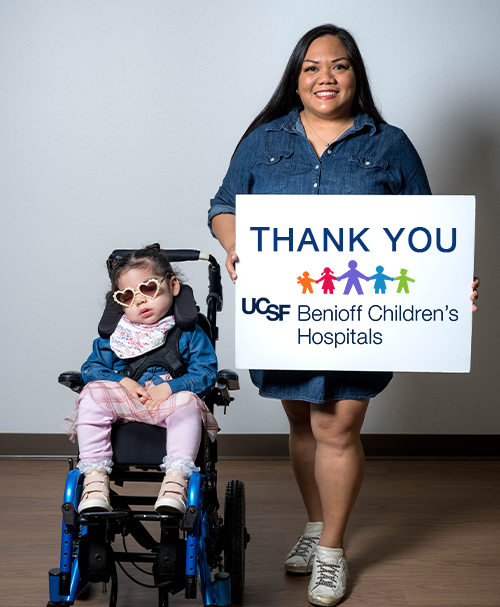Leia’s Story: Our Bundle of Joy
"She was hilarious,” reflects Tim Fitzgerald of his daughter, Leia. “The literal definition of a bundle of joy.”
 That was Leia at age 2: a happy, energetic toddler whose laughter and dance moves captivated her parents. She loved to dress up — complete with props and hats — and put on silly performances for her adoring parents.
That was Leia at age 2: a happy, energetic toddler whose laughter and dance moves captivated her parents. She loved to dress up — complete with props and hats — and put on silly performances for her adoring parents.
In December 2023, everything changed. Suddenly, Leia was exhibiting frightening symptoms. She seemed spacey, even unresponsive at times, and experienced sudden and extreme bouts of agitation. When the symptoms worsened, Tim and Lokelani Montero, Leia’s mom, brought her to urgent care, thinking that perhaps their daughter was suffering from an ear infection.
But Leia’s diagnosis was much worse: anti-NMDAR encephalitis, a rare disease that causes the immune system to attack parts of the brain, leading to seizures, movement disorders, and changes in behavior. Within days of her diagnosis, Leia, who had been so full of energy and life, lost her ability to walk, talk, and eat independently.
“It’s jarring and life-altering, and you’re like, ‘OK, this is happening to us,’” Tim says. “It just throws your whole life for a loop."
Lokelani tracked down the doctor who discovered the condition back in 2007, who immediately recommended UCSF Benioff Children’s Hospitals as the best place for Leia. “He said UCSF was a powerhouse when it comes to rare conditions like these, especially autoimmune encephalitis,” Lokelani recalls.
The family spent four months living at UCSF Benioff Children’s Hospital Oakland, where Leia received treatment and eventually progressed to the Rehabilitation Center, which worked diligently to help the once-lively little girl get well enough to return home.
“Without the rehab team, we would have been lost,” Tim says. “There’s a light at the end of the tunnel for her, a path to recovery, and we wouldn’t know how to be on that path without them.”

That road to recovery will be long — two years at least. But just a few months after returning home, there were signs of progress: Leia began to look at her parents again, track objects with her eyes, and watch the pages of a book turn, one by one. A year later, Tim and Lokelani report that Leia, now 3, is growing more curious by the day.
As Tim and Lokelani continue to support their child’s healing, they have also dedicated themselves to giving back to the hospital that gave them so much. In addition to Lokelani’s professional role in philanthropy with Bank of America, which had made gifts to support UCSF even before her family needed care, the family is participating in the UCSF Benioff Children’s Hospitals’ patient ambassador program to help raise awareness of children like theirs.
“I never realized how resilient Leia and we, as a family unit, could be,” says Lokelani. “When donors give to these hospitals, they really help give her a chance to live a thriving life.”